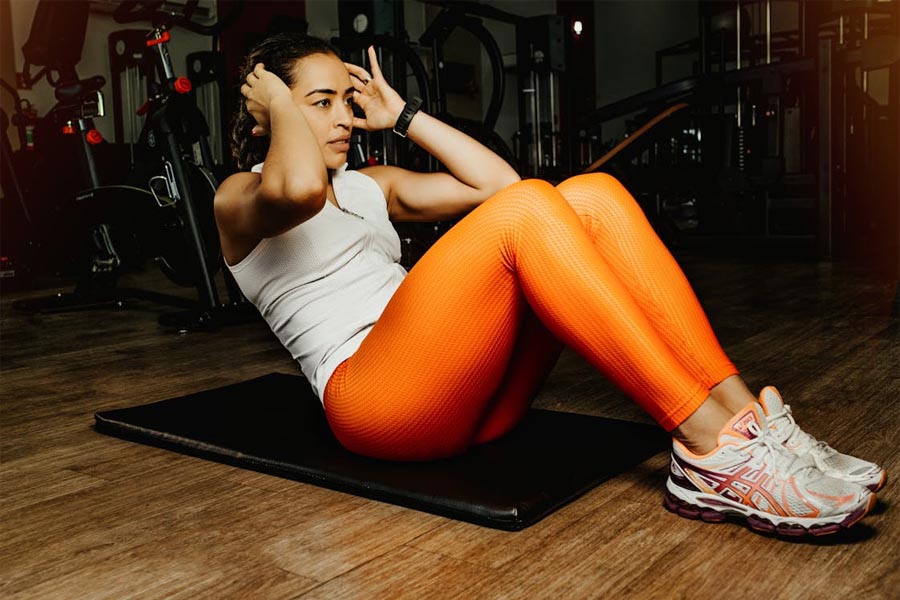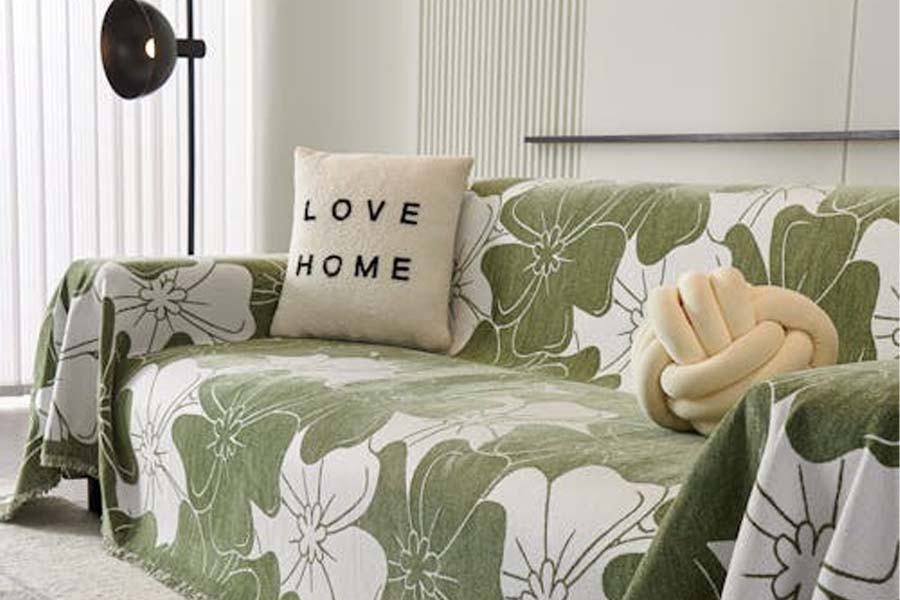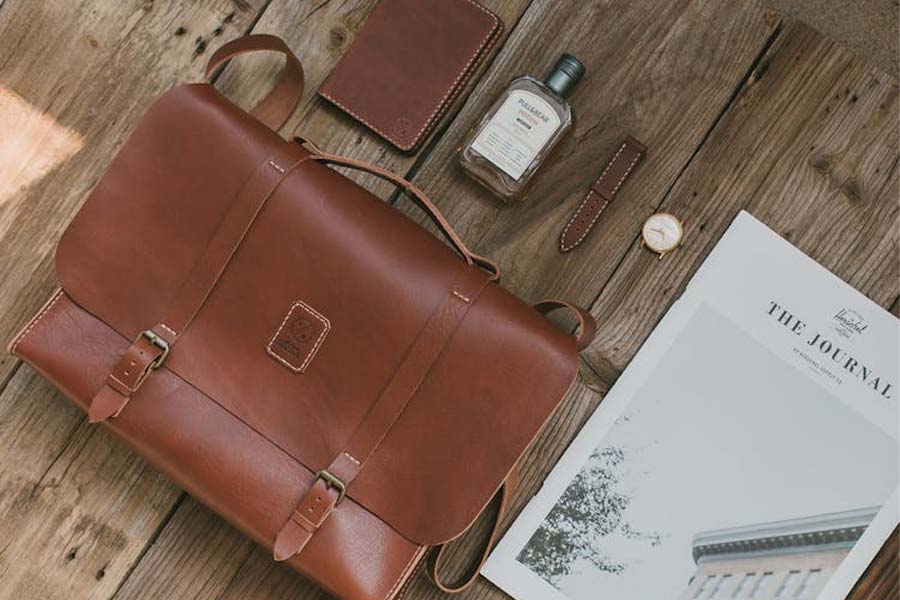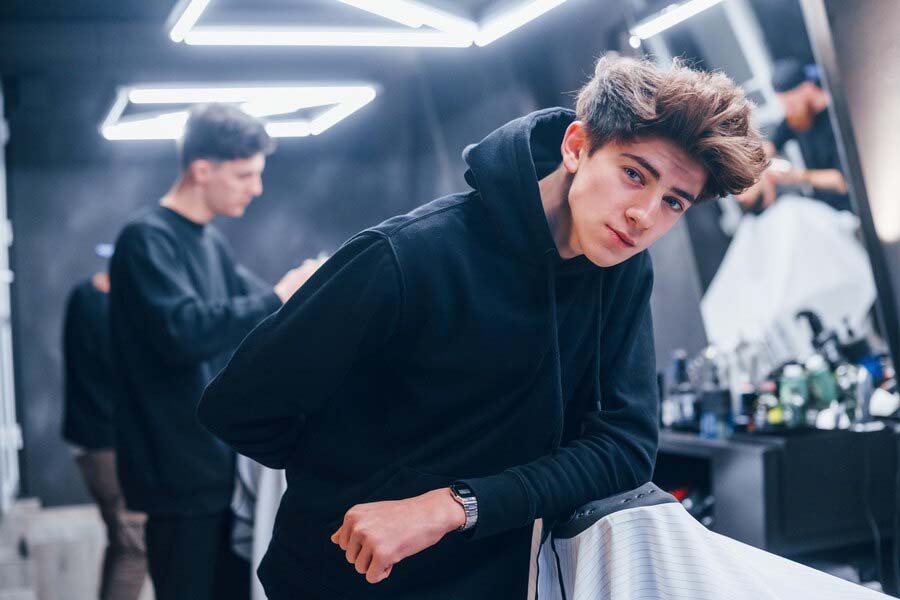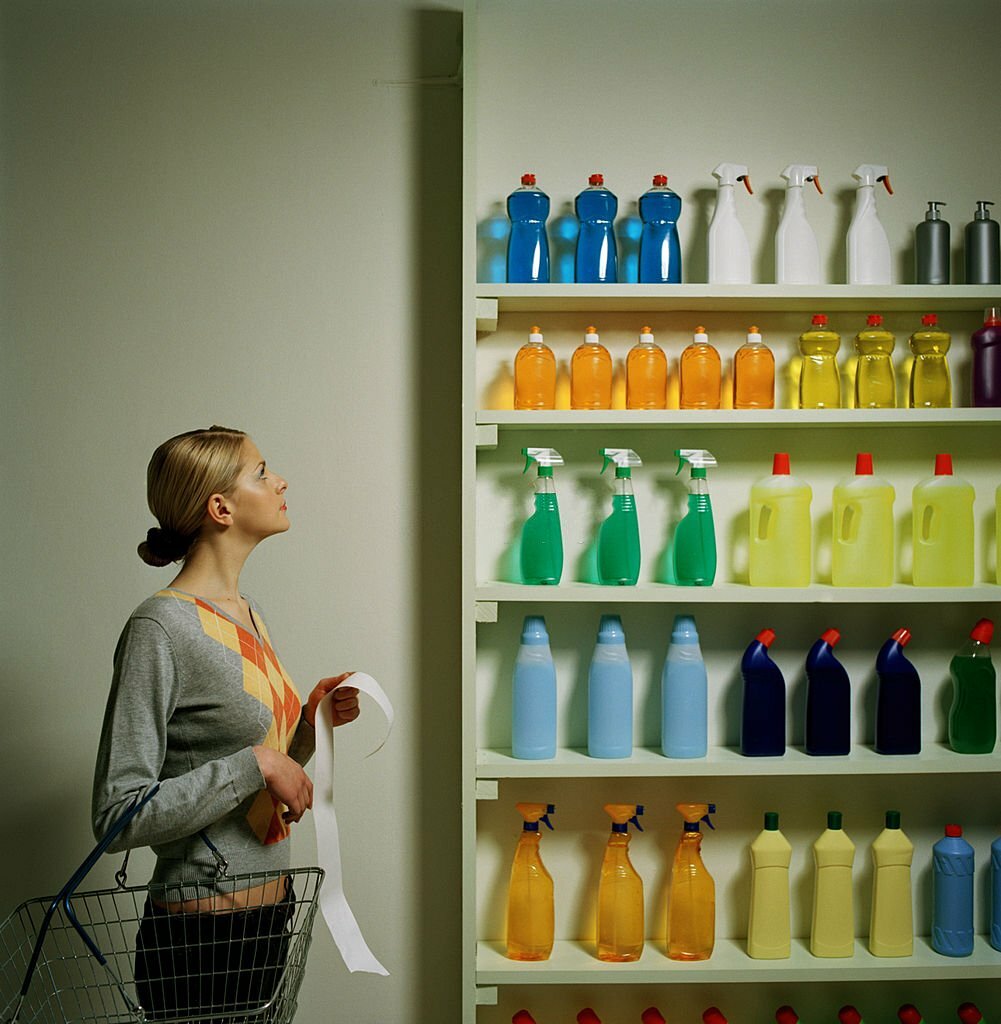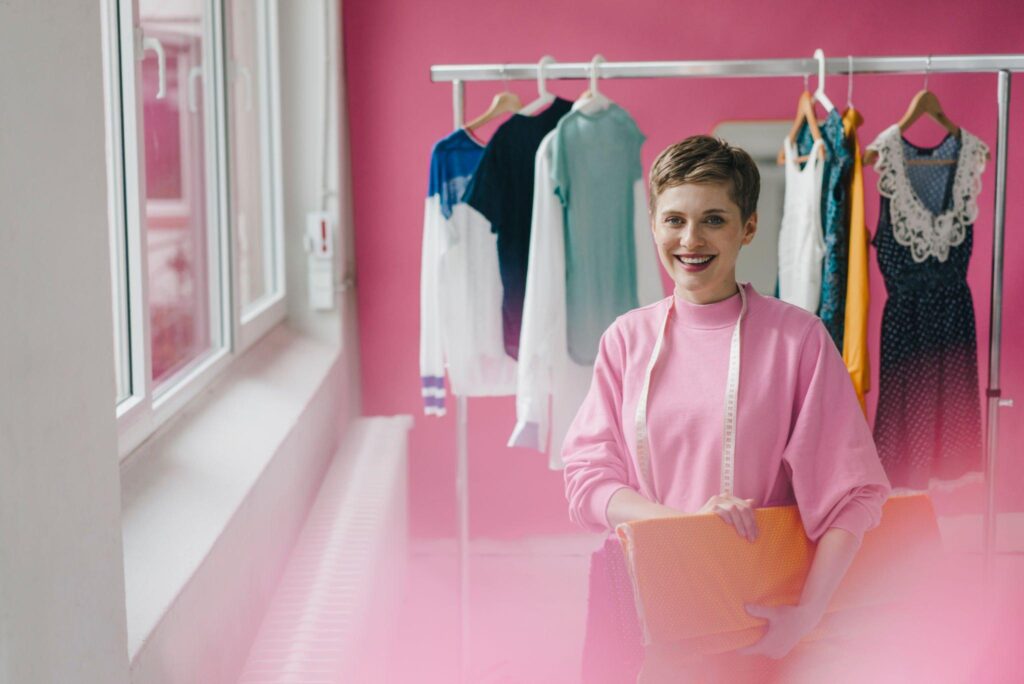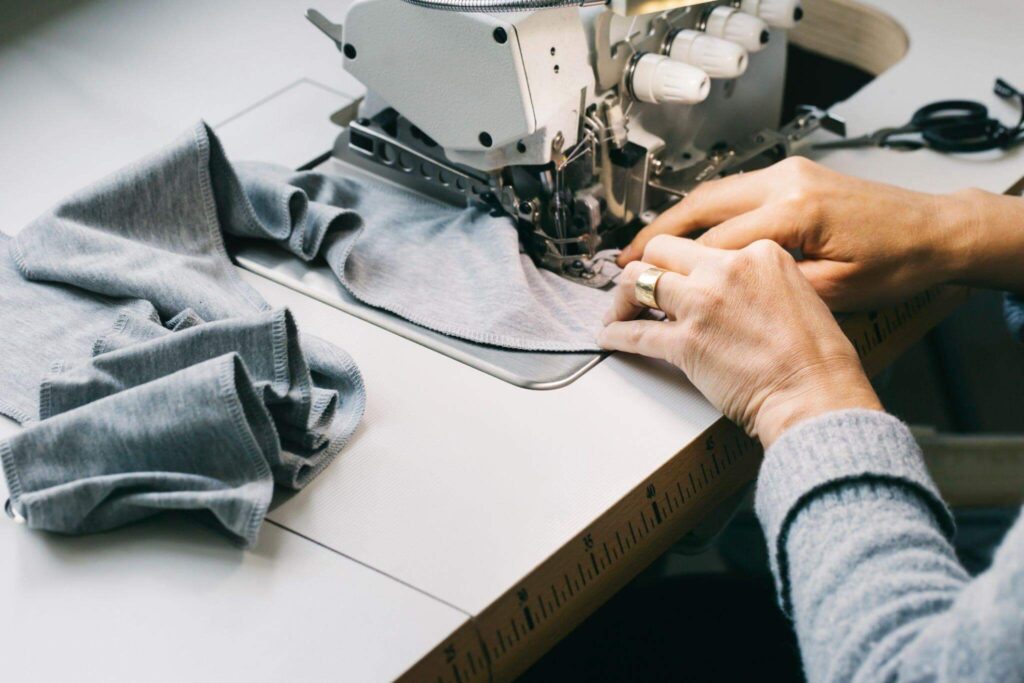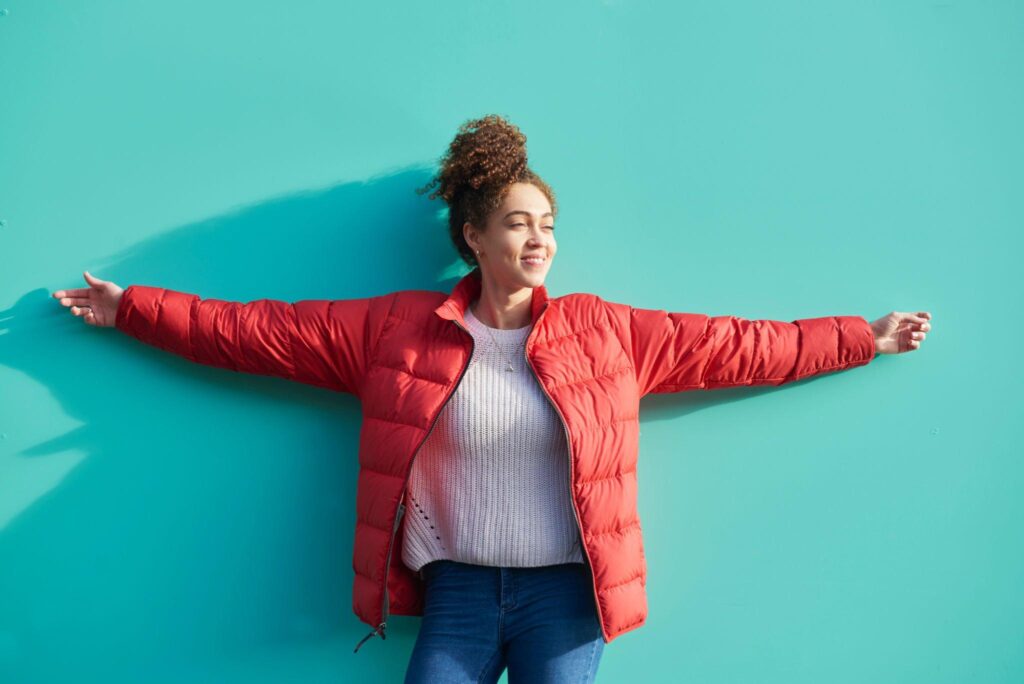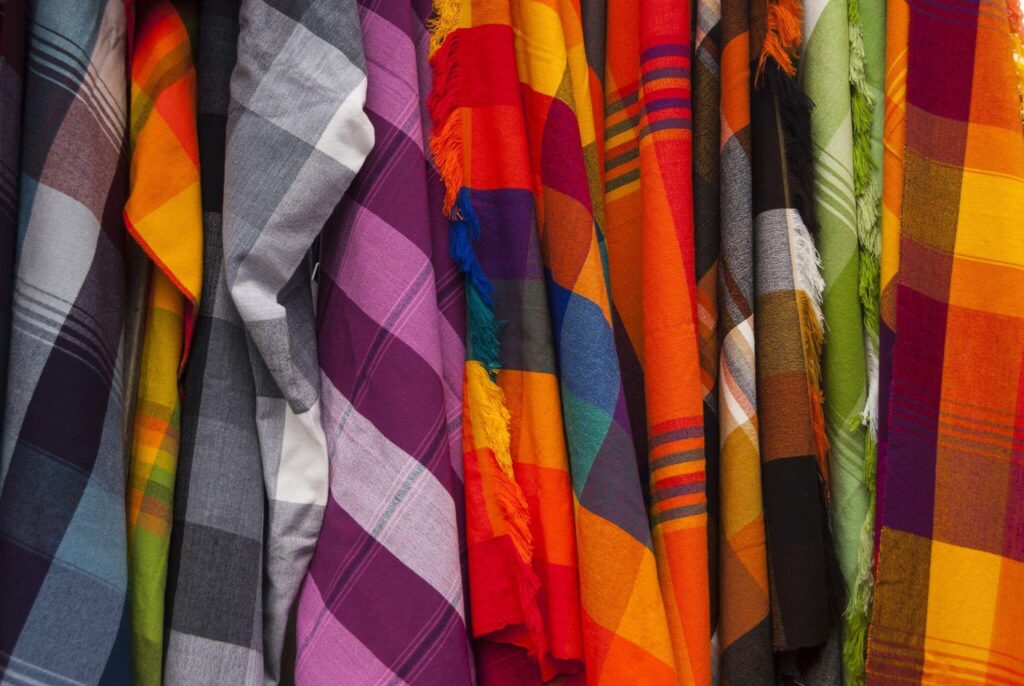Mastering clothing line photography transforms product presentation into a strategic brand asset. High-quality visuals capture garment details while conveying your brand’s essence, directly impacting consumer engagement and sales conversion. This comprehensive guide details essential techniques for creating compelling imagery that elevates your fashion brand.
The Strategic Value of Fashion Photography
Professional photoshoots serve as critical brand communication tools, presenting new collections to retailers and consumers with precision. Beyond aesthetic appeal, effective imagery must accurately showcase fabric composition, construction details, and design integrity while embodying the collection’s conceptual narrative.
7-Step Professional Workflow for Clothing Photography
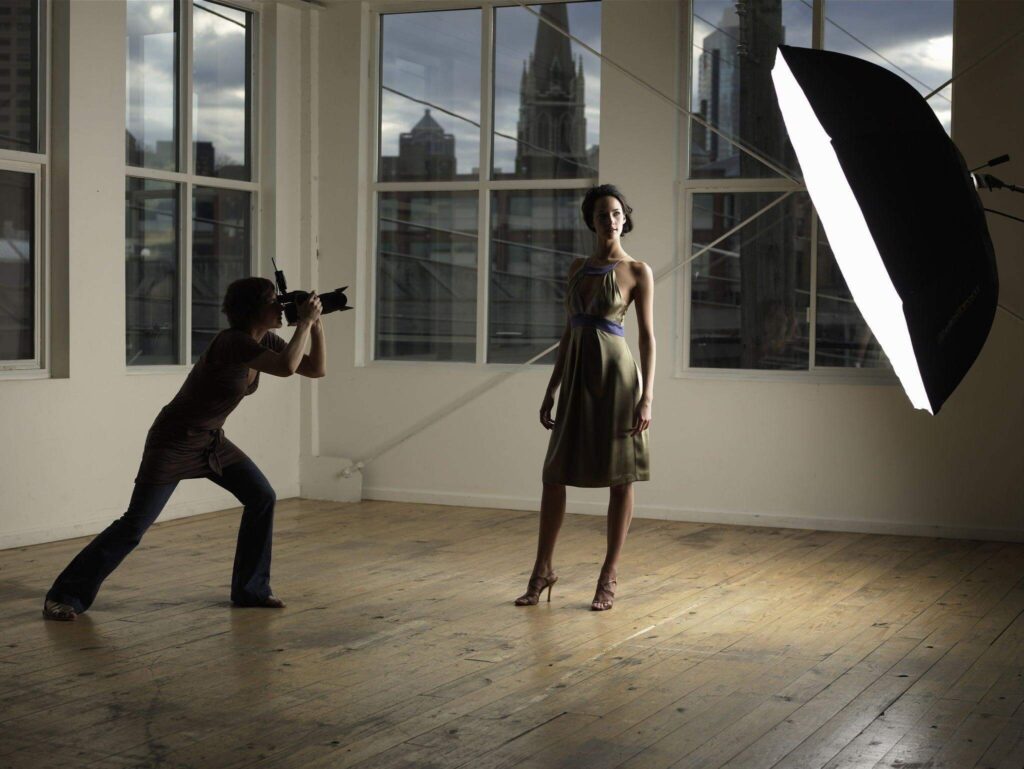
1. Garment Preparation Protocol
Photogenic readiness begins with meticulous garment conditioning. During transit, fabrics develop wrinkles and creases that undermine visual quality. While post-production editing offers solutions, excessive retouching risks distorting textures and colors. Implement these professional standards:
- Steam garments using industrial-grade equipment to eliminate deep-set creases
- Conduct thorough inspections for loose threads or imperfections
- Verify color consistency against Pantone references under calibrated lighting
Ludyway’s quality control ensures samples arrive camera-ready, particularly for complex items like custom leggings requiring precise seam alignment.
2. Studio Configuration Standards
Establish professional shooting environments with essential equipment: DSLR/mirrorless cameras, sturdy tripods, and C-stands. Lighting systems should include:
Backdrop Specifications
Select non-reflective matte surfaces (90-95% reflectance) to prevent color contamination. Seamless paper rolls mounted on motorized systems eliminate floor shadows. Position subjects 1.5m from backgrounds to prevent light spill.
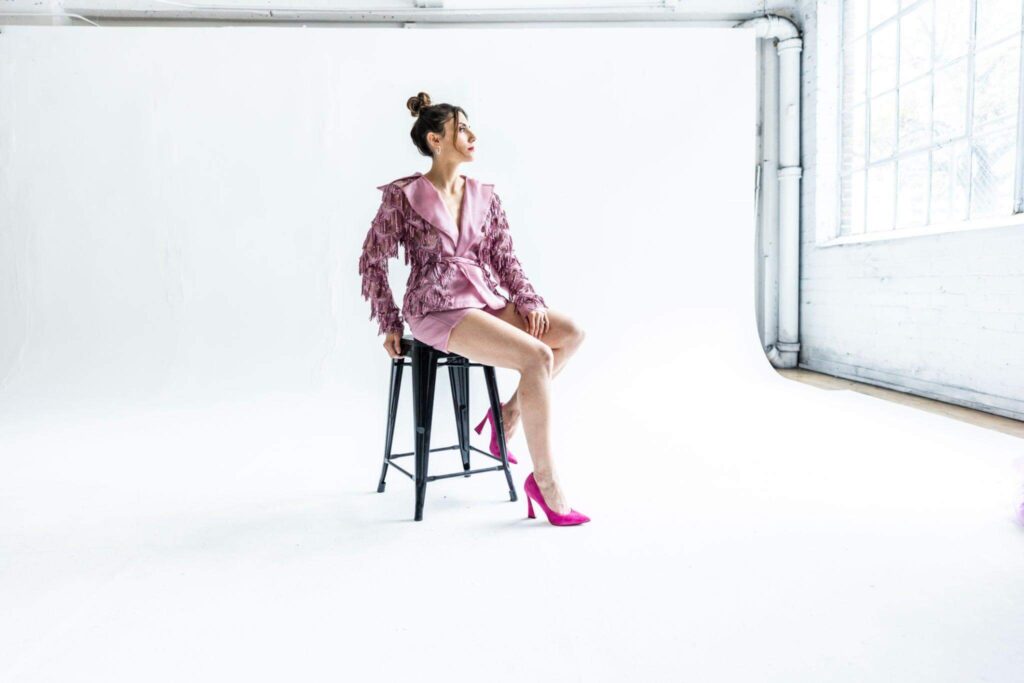
Lighting Systems
Three-point lighting delivers dimensional accuracy:
- Key light: 45-degree angle with 36″ softbox (800-1000W)
- Fill light: 30% intensity opposite key light
- Hair light: Backlight separation with barn doors
Budget alternative: North-facing window + 5-in-1 reflector kit.
3. Precision Lighting Techniques
Light positioning dictates fabric texture reproduction:
- Silk/satin: Diffused frontal lighting at 55-degree angle
- Knits: Side lighting to enhance dimensional stitches
- Technical fabrics: Cross-polarization for waterproof claims
Use light meters to maintain consistent f/11 exposure at ISO 100. Distance ratios should maintain 2:1 lighting contrast.
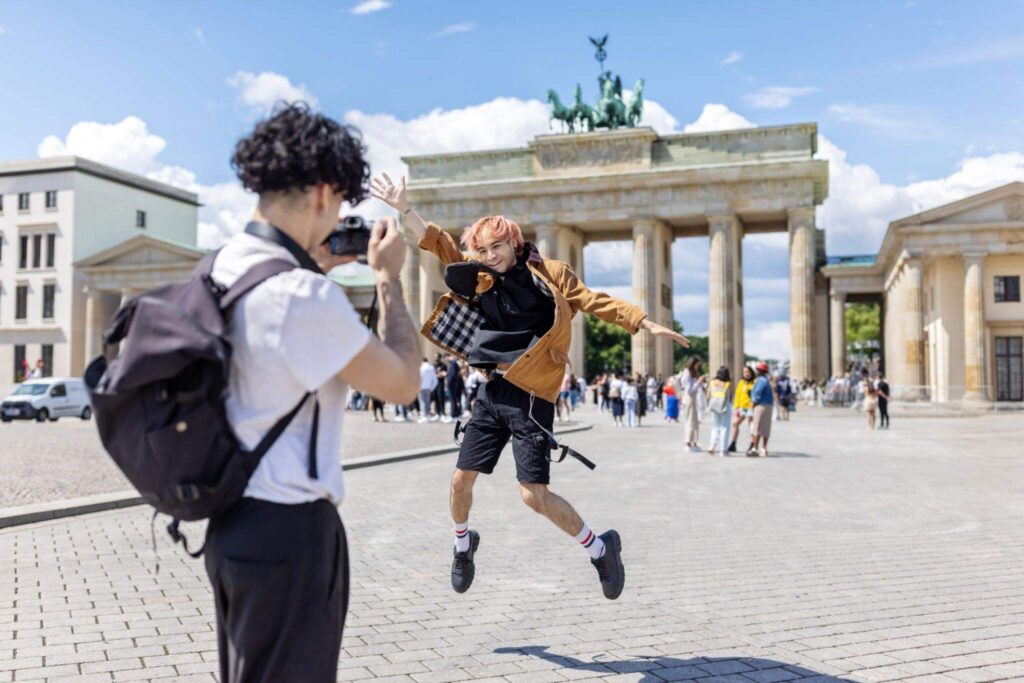
4. Advanced Styling Methodologies
Mannequin Styling
Select adjustable forms with torso articulation. For oversized garments, clip excess fabric inward using binder clips. Position arms at 15-degree angles to showcase sleeve construction.
Model Direction
Communicate movement sequences: “Walk toward marker 3, pivot left shoulder forward on count 4.” Capture dynamic motion for performance sportswear.
Flat Lay Composition
Apply rule-of-thirds framing with intentional negative space. Layer complementary items like premium tees under jackets. Use acrylic risers for depth.
5. Camera Technical Configuration
Exposure Parameters
| Fabric Type | Aperture | Shutter Speed |
|---|---|---|
| Sheer | f/8 | 1/160s |
| Textured | f/11 | 1/125s |
| Reflective | f/16 | 1/200s |
White Balance Calibration
Shoot reference cards under each lighting scenario. Match Kelvin temperatures in post-production:
- Studio strobes: 5500K
- Daylight: 6500K
- LED panels: 5600K
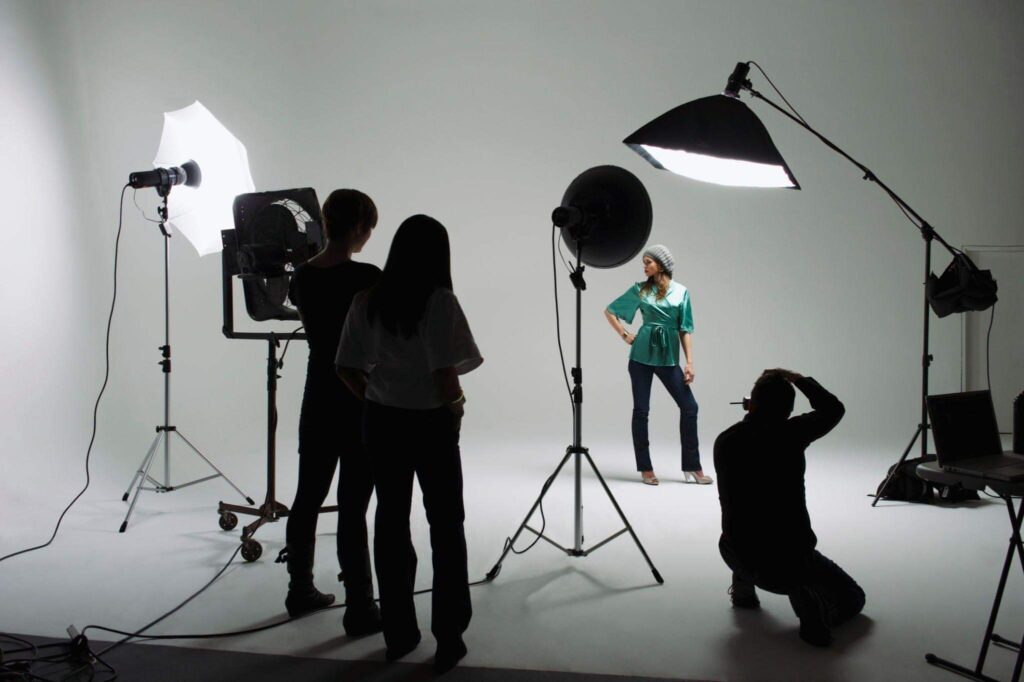
6. Strategic Capture Sequence
Systematic shooting ensures comprehensive coverage:
- Establish master shot (full-frontal)
- Detail shots: Stitching, labels, closures
- Context shots: Layered styling, in-use scenarios
- Movement series: 5-frame walk cycles
For corporate uniforms, capture interaction shots showing multiple wearers.
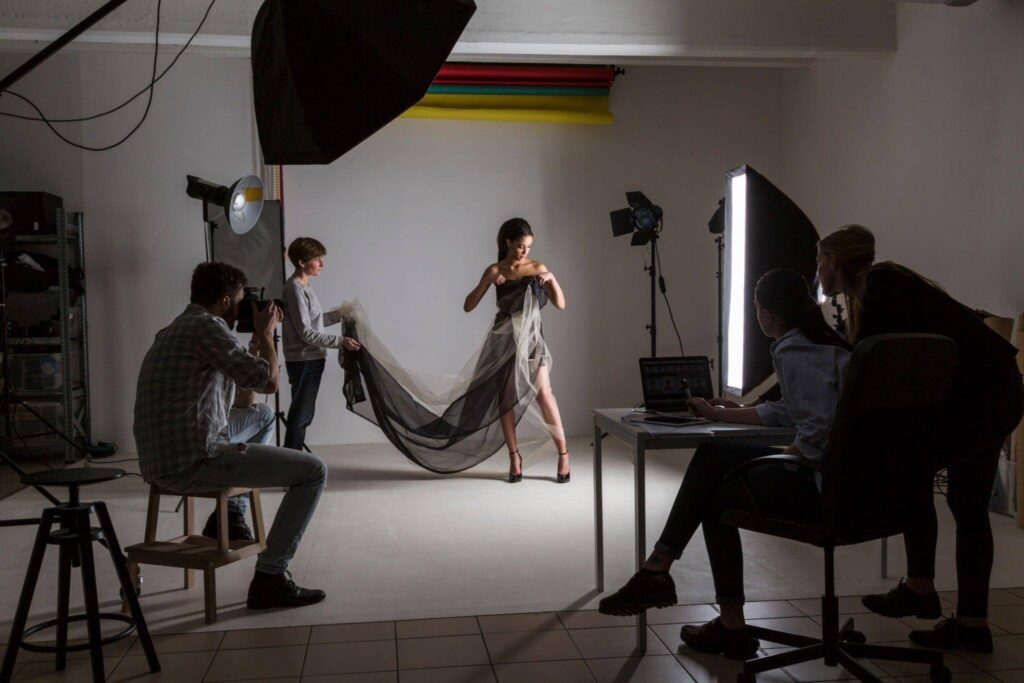
7. Post-Production Workflow
Color Accuracy Protocol
Use ColorChecker Passport for profile generation. Adjust hue/saturation selectively:
- Reds: +5% saturation
- Blues: -3% luminance
- Neons: Channel-specific curves
Background Optimization
Path-based clipping preserves fine details on complex items like textured hoodies. Maintain 2px feathering for natural edges.
Psychological Dimensions of Apparel Imagery
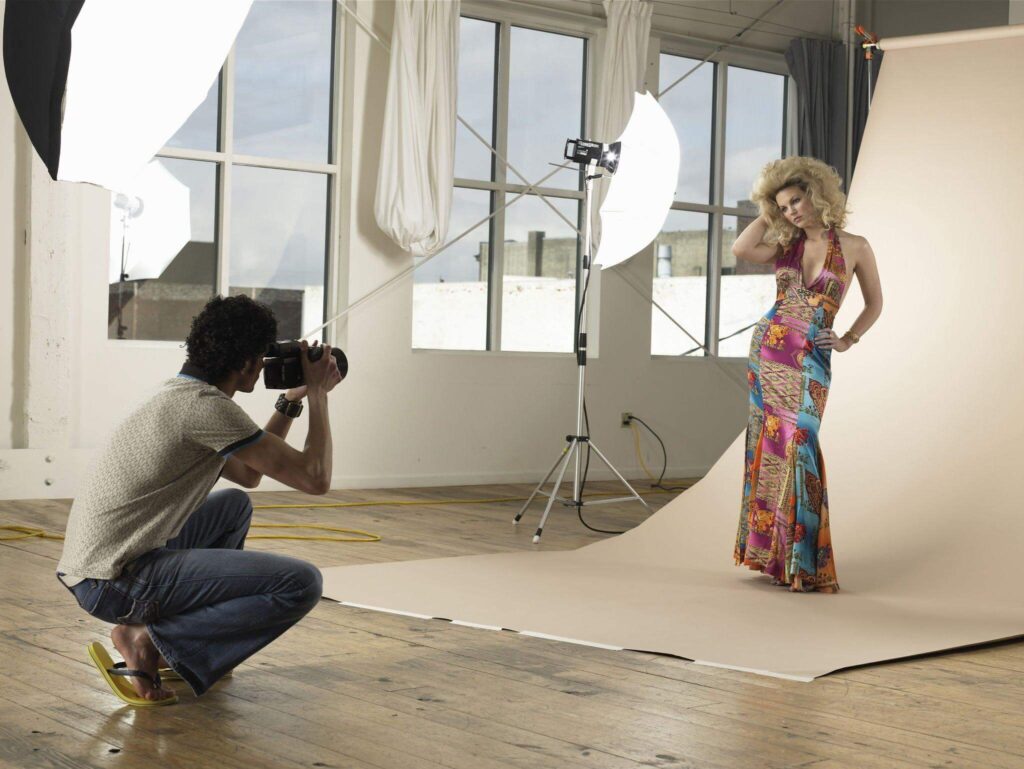
Visual storytelling directly impacts conversion metrics:
Color Semiotics
- Deep blues: Establish corporate trust (ideal for uniforms)
- Earth tones: Reinforce sustainability narratives
- Metallics: Convey premium positioning
Authentic Representation
Diverse model casting increases engagement by 47% (Meta 2023). Show garments on varied body types using adjustable mannequin systems.
Photoshoot Budget Allocation Framework
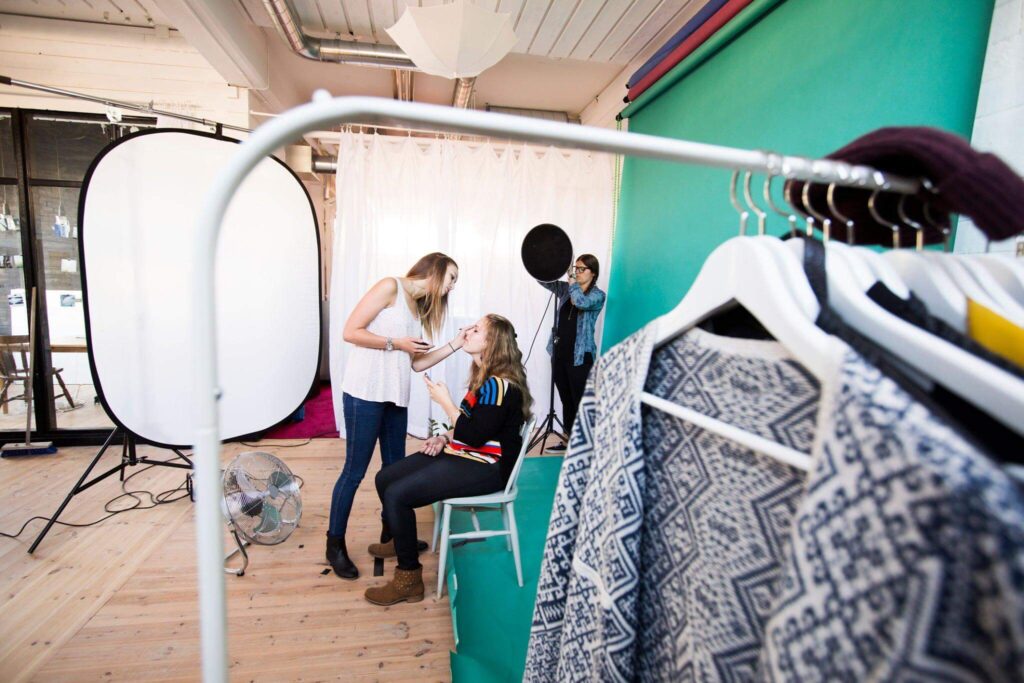
Strategic investment prevents quality compromises:
Photographer Selection
$150-$300/hour for specialists with textile experience. Prioritize portfolios demonstrating fabric reproduction accuracy.
Location Economics
- Studio rental: $75-$150/hour (4-hour minimum)
- Location permits: $100-$500/day
- On-location premium: +40% fee
Model Value Analysis
$200-$350/hour for experienced fit models. Reduce costs using mannequins for technical shots. Ludyway clients leverage our sample programs to photograph production-grade garments before bulk commitment.
Post-Production Essentials
$4-$10/image for professional retouching. Budget 20% for reshoots of complex items.
Strategic Implementation Guide
Professional clothing photography merges technical precision with brand storytelling. By implementing these methodologies, emerging brands achieve visual parity with established competitors. Consistency across touchpoints—from e-commerce to wholesale catalogs—builds brand legitimacy and consumer trust.
Ludyway supports designers with manufacturing solutions that enhance visual storytelling. For sample development inquiries, contact info@ludyway.com.
Proceed with confidence: Master these techniques to create imagery that accurately represents your collection’s quality while resonating with target audiences.


